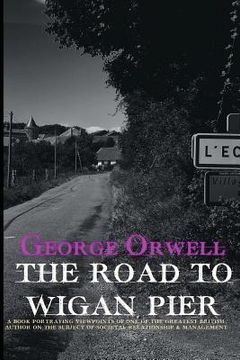Eric Arthur Blair (Motihari, Raj Británico, 25 de junio de 1903-Londres, Reino Unido, 21 de enero de 1950), conocido por su seudónimo de George Orwell, fue un novelista, periodista, ensayista y crítico británico nacido en la India, autor entre otras obras de las novelas distópicas Rebelión en la granja (1945) y 1984 (1949).
Su obra lleva la marca de las experiencias autobiográficas vividas por el autor en tres etapas de su vida: su posición en contra del imperialismo británico que lo llevó al compromiso como representante de las fuerzas del orden colonial en Birmania durante su juventud; a favor del socialismo democrático, después de haber observado y sufrido las condiciones de vida de las clases sociales de los trabajadores de Londres y París; y en contra de los totalitarismos nazi y estalinista tras su participación en la guerra civil española, en el bando republicano.
Además de cronista, crítico de literatura y novelista, es uno de los ensayistas en lengua inglesa más destacados de las décadas de 1930 y de 1940. También es conocido por sus críticas al totalitarismo en su novela corta alegórica Rebelión en la granja (1945) y su novela distópica 1984 (1949), escrita en sus últimos años de vida y publicada poco antes de su fallecimiento, y en la que crea el concepto de «Gran Hermano», que desde entonces pasó al lenguaje común de la crítica de las técnicas modernas de vigilancia.
Ver más
Ver menos

